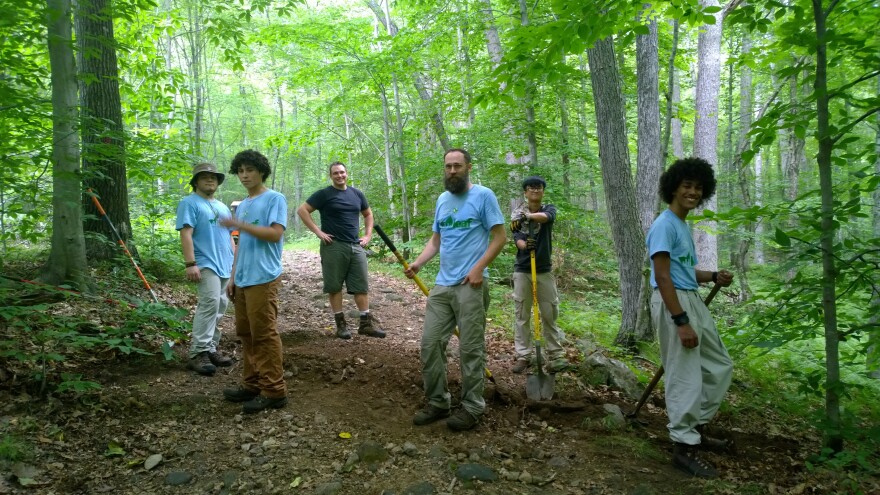A high school internship from the Nature Conservancy is working to improve students’ understanding of the natural world.
Elmer Glavez interned with the LEAF program this summer. He said he's always had an appreciation for nature.
“As a result of this internship, I really, really want to do something involved with the environment,” Glavez said.
Galvez recently graduated from high school in New Haven. As a LEAF intern -- which stands for Leadership in Environmental Action for the future -- he said his experience pushed him to explore new ways he can work to solve the many complex problems that face the natural world.
“I want to go – and it’s a big thing to say – but try to fix all of the environmental issues that are occurring today," Glavez said. "Potentially doing something involving environmental law, or environmental justice, or maybe social justice, to try to fix these problems that the world is facing right now.”

Connecticut’s LEAF interns focus mostly on issues related to the Long Island Sound, says Cynthia Fowx, the internship coordinator.
“They’re learning about new landscapes, new habitats, issues that are specific locally here for those students and their families and their communities," Fowx said. "Things that they don’t necessarily learn in a classroom.”
Currently only two high schools in the state participate: Common Ground and the Sound School Regional Vocational Aquaculture Center. Both are in New Haven, and both have environmental themes.
Fowx said that the internship might eventually take students from regular high schools, but that would take additional funding. She said the program's goal is simple: to get students interested in the environment.
Recent intern Galvez said that in addition to learning about the land, the internship also taught him how to live with four strangers for a month over the summer.
The program has been around since 1995 and is in 28 states. A nation-wide survey found that 30 percent of LEAF participants went on to pursue a career related to the environment.


